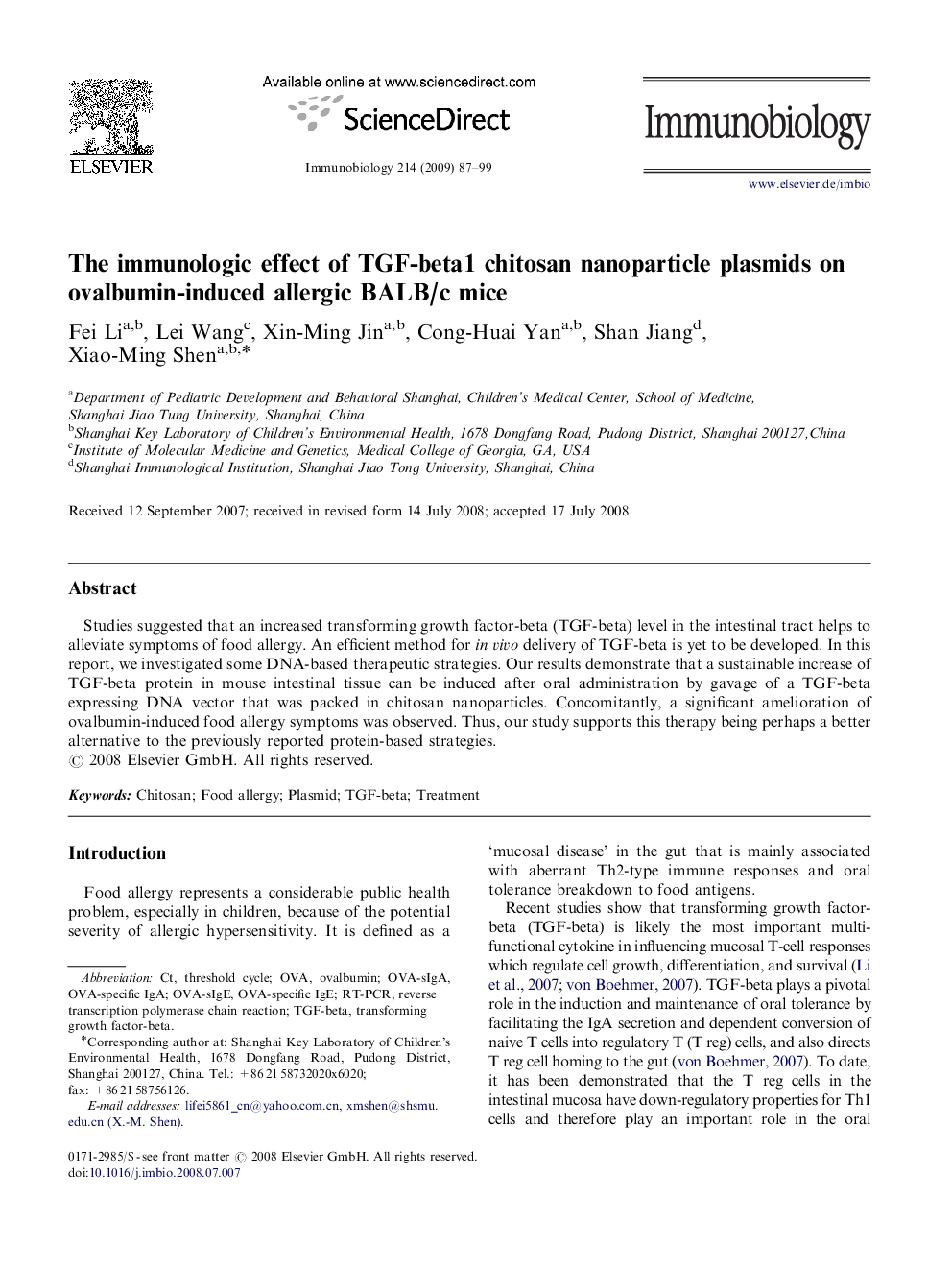| Article ID | Journal | Published Year | Pages | File Type |
|---|---|---|---|---|
| 2183490 | Immunobiology | 2009 | 13 Pages |
Studies suggested that an increased transforming growth factor-beta (TGF-beta) level in the intestinal tract helps to alleviate symptoms of food allergy. An efficient method for in vivo delivery of TGF-beta is yet to be developed. In this report, we investigated some DNA-based therapeutic strategies. Our results demonstrate that a sustainable increase of TGF-beta protein in mouse intestinal tissue can be induced after oral administration by gavage of a TGF-beta expressing DNA vector that was packed in chitosan nanoparticles. Concomitantly, a significant amelioration of ovalbumin-induced food allergy symptoms was observed. Thus, our study supports this therapy being perhaps a better alternative to the previously reported protein-based strategies.
